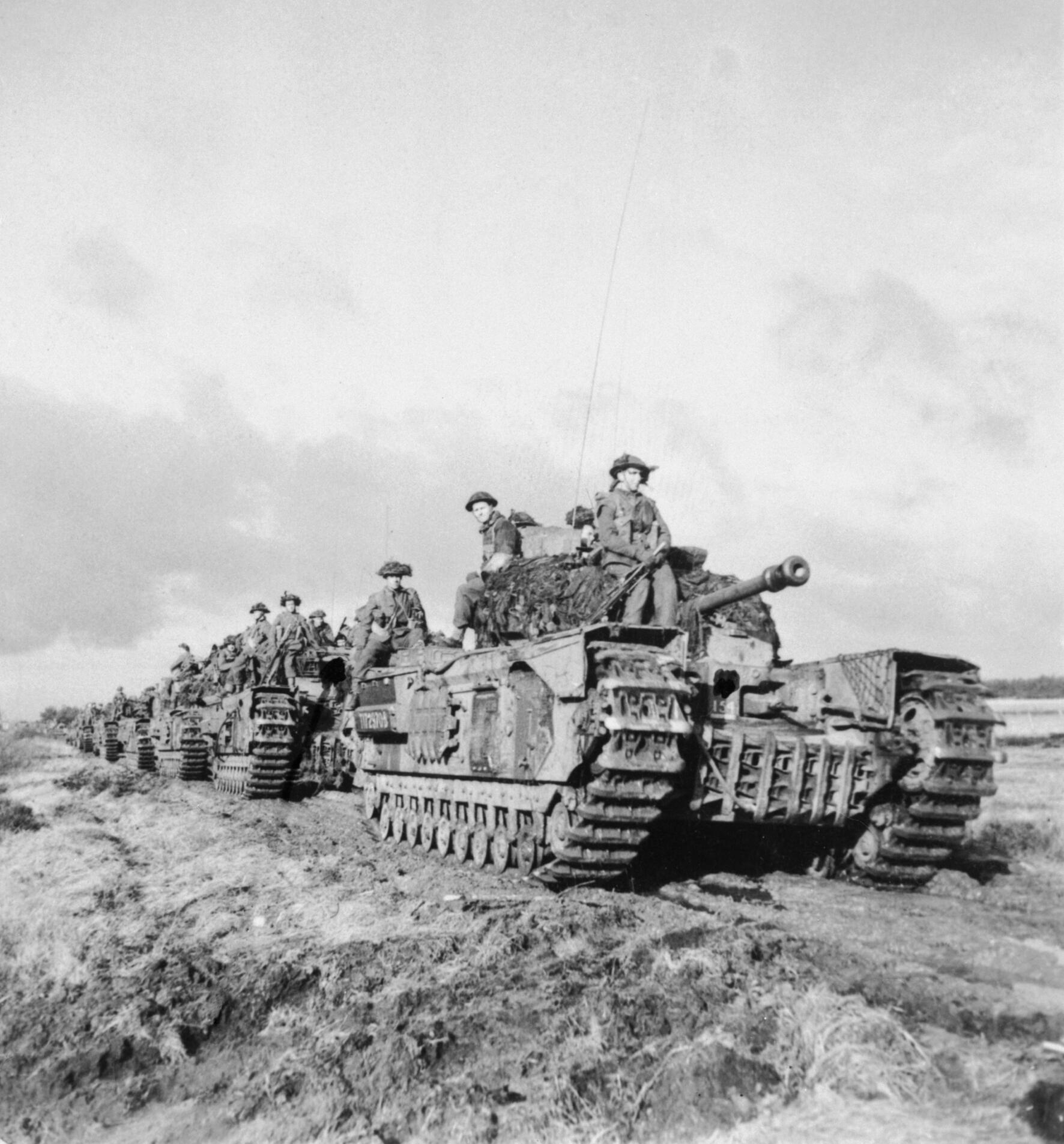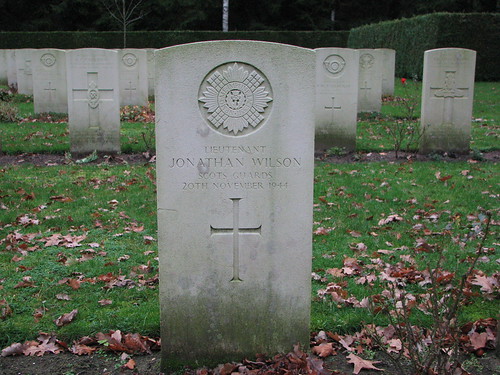Today is Remembrance Sunday in the UK, and for obvious reasons I was debating putting an article up today. However as Remembrance Sunday is a UK only event, and as we have a global readership I decided to do something fitting with the period and still produce an article.
A couple of years ago when researching a British army tank unit I brought a second hand book on the subject. When the book arrived I was surprised to find a sheaf of papers inside it. These were letters from a Soldiers Mother to a friend of the family. The book also had a dedication glued into the front page. From what I can tell the book, and the letters were gifted to a friend of the family who knew the soldier when he was a boy.
This soldiers story has never been seen in one place before, although parts of the story are known. There is no daring-do in this story, no medals. Just a perfect example of the hundreds of thousands of people from around the world who stopped their lives to fight in histories most destructive conflict, and were never able to carry them on. Many of whom have been forgotten by history. At least in this case I can do something about that. So today I give you Jonathan Wilson's story.
 |
| Johnathan Wilson in 1942 |
In September 1937 he enrolled at Marlborough College, where he became an accomplished poet. So much so Marlborough college published about 20 of his works in a book called False Starts. He was still at college when the Second World war started. In 1942 he Captained the Marlborough 1st Rugby XV. In his final year he was also Prefect and the editor of the school magazine "The Marlburian". However as an 18 year old in the middle of World War Two, there was only one option, and he enlisted.
Jonathan Wilson became an officer, and on the 24th of January 1944 he Joined the 3rd Scots Guards while based at Thoresby Park, as a Second Lieutenant. The 3rd Scots were a regiment in the 6th Guards tank brigade. At this time I've yet to be able to find out what role in the Regiment he served in. However on the 19th of September due to an internal promotion Lt Wilson was put in command of a troop in "S" Squadron, although it appears later on he was transferred to command 14 Troop of "Left Flank". His Churchill was named "SPEY", after the Scottish river.
(It should be noted that the Scots guards have an odd way of naming their squadrons. Squadron one is called "Right Flank", Squadron two "S Squadron" and Squadron three is "Left Flank")
Until the late of October the Scots Guards saw no combat, apart from a bombardment against German bunker position at a range of 4000 yards. However on 24th It was realized the Germans had started falling back from the front, and so an advance was ordered. As part of this deployment the Scots were hurriedly pushed forward to seize the village of Moergestel, and its bridge. When they arrived the Scots found the bridge over the canal demolished. The jubilant Dutch townsfolk upon realizing the problem were led by a local priest. Unbidden by the Guardsmen they began gathering boulders and rubble to construct a ford, so the Scots might continue to pursue the retreating Germans. The exuberance shown in this endeavour caused several of the watching officers to fear for their safety as the work was carried out with extreme haste and little care. After a short while the leading tank commander thought he could make it across. On the far bank the Churchill's legendary hill climbing ability failed, and the tank got stuck. However shortly afterwards a bridge-layer arrived and the regiment continued its advance.
A quick push and the Scots worked their way into the outskirts of Tilburg where they started meeting resistance. At this point it appears Lt Wilson's squadron was stuck trying to get through the celebrating Dutch at Moergestel. By the time that Lt Wilson's troop had cleared the traffic jam Tilburg had fallen. Tilburg was the first large town the Scots had liberated and a massive celebration was under-way. Lt Wilson's troop was moving up to join in the celebration when, much to his troops annoyance they were diverted to the south. A German counter attack had hit and scattered parts of the US 7th armoured Division, and the Scots guards were required to assist. By the time the Scots Guards reached the front the battle was over, broken up by air and artillery power, and the dogged resistance of some US forces.
_Division,_during_the_assault_on_Tilburg,_Holland,_28_October_1944._B11419.jpg) |
| 6th Guards near Tilburg |
 |
| 3rd Scots Advancing from Beringe |
 |
| Lt Wilson's resting place at Venray |
 |
| The Order of Service from the book |
Edit on 14/11/13
It appears I made a mistake. I've been contacted by a member of the Wilson family, who helped me clear up a couple of mistakes I made in the main text.
The main mistake was who wrote the letters. The Letters were written by Mrs Wilson, Jonathan's mother. The book was dedicated to Alice Petter, listing Jonathan's rank and position. Mrs Petter was the families nanny/mothers help during the early 30's and would have known Jonathan as child.
I was late for morning tea at work this morning so was alone in the canteen and decided to read your weekly post. I finished reading with some deep reflection and looked up as the clock struck 11am.
ReplyDeleteLest We Forget....
Thank you Jonathan, Dad, Dukey, and everyone who just went and tried to do right.
Thank you David for the right story for today.
Tony.
No worries I felt it was correct as well.
ReplyDeleteThanks.
The harsh reality of war, no glory, no heroism. Sometimes a shell just has your name on it.
ReplyDeleteLest we forget.
Excellent post Listy.
ReplyDeleteThanks for the post Listy.
ReplyDeleteAn interesting read ! My father was a member of "S" squadron 3rd Scots Guards throughout the NW Europe campaign in 1944/45. The book "6th Guards Tank Brigade - the story of Guardsmen in Churchill Tanks" by Patrick Forbes is worth a read. There is also a website and Facebook page https://sites.google.com/site/6thguardstankbrigade/
ReplyDeleteThis comment has been removed by the author.
ReplyDeletewe adopted Jonathan's grave and ensure that fresh flowers are added regularly.
ReplyDeleteWe have tremendous respect for the way he fought for our freedom and are extremely grateful to him. Nellie and Ben Snellen.
My mother, Joyce Dyer, was good friends with Jonathan's sister, Meggie Spicer (nee Wilson). I have a book of Jonathan Wilson's poetry which he dedicated to my mother before WW2 started. I think he was rather fond of her!
ReplyDeleteHow nice to read. I also received a book of poems from Jonathan's family and am very proud of it. He was a beautiful man and he was very gifted.
DeleteThis comment has been removed by the author.
ReplyDelete